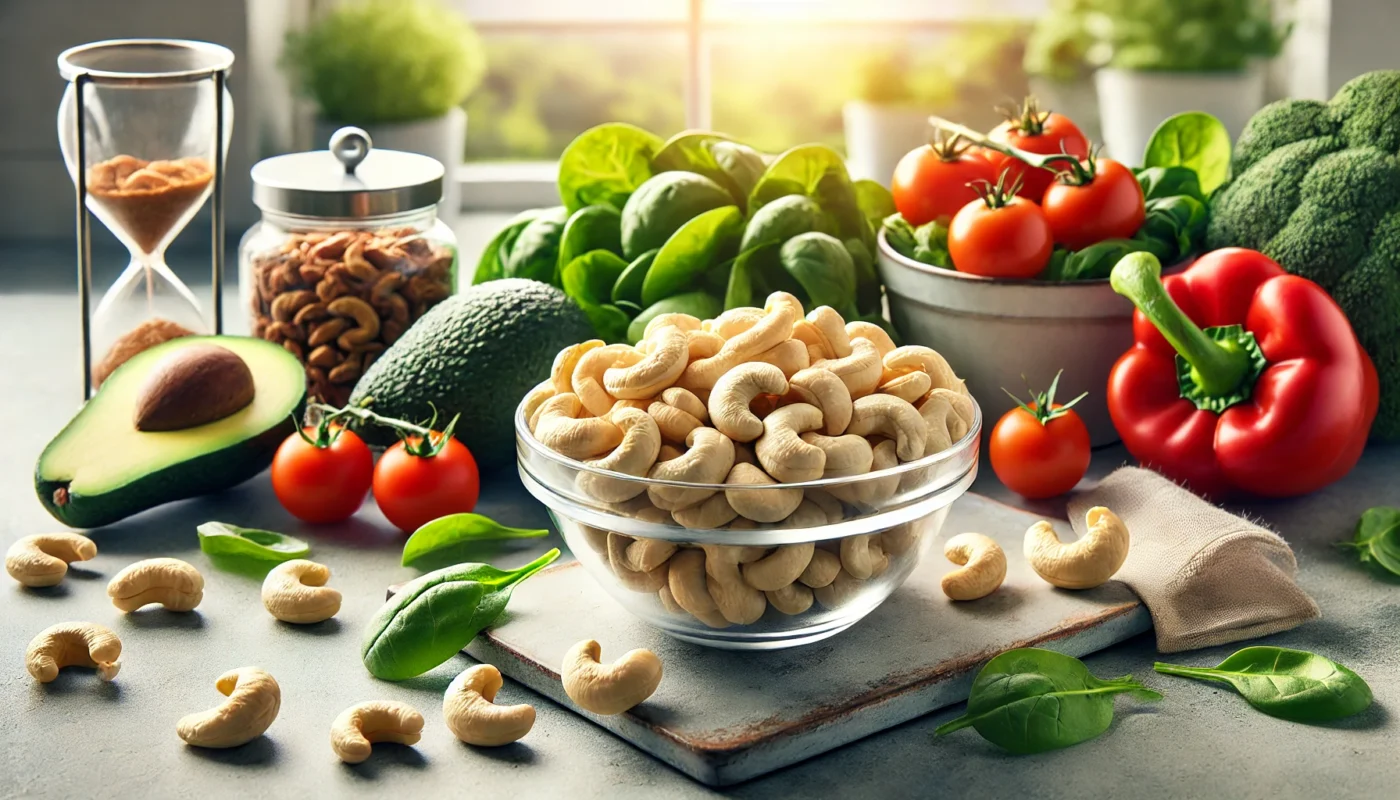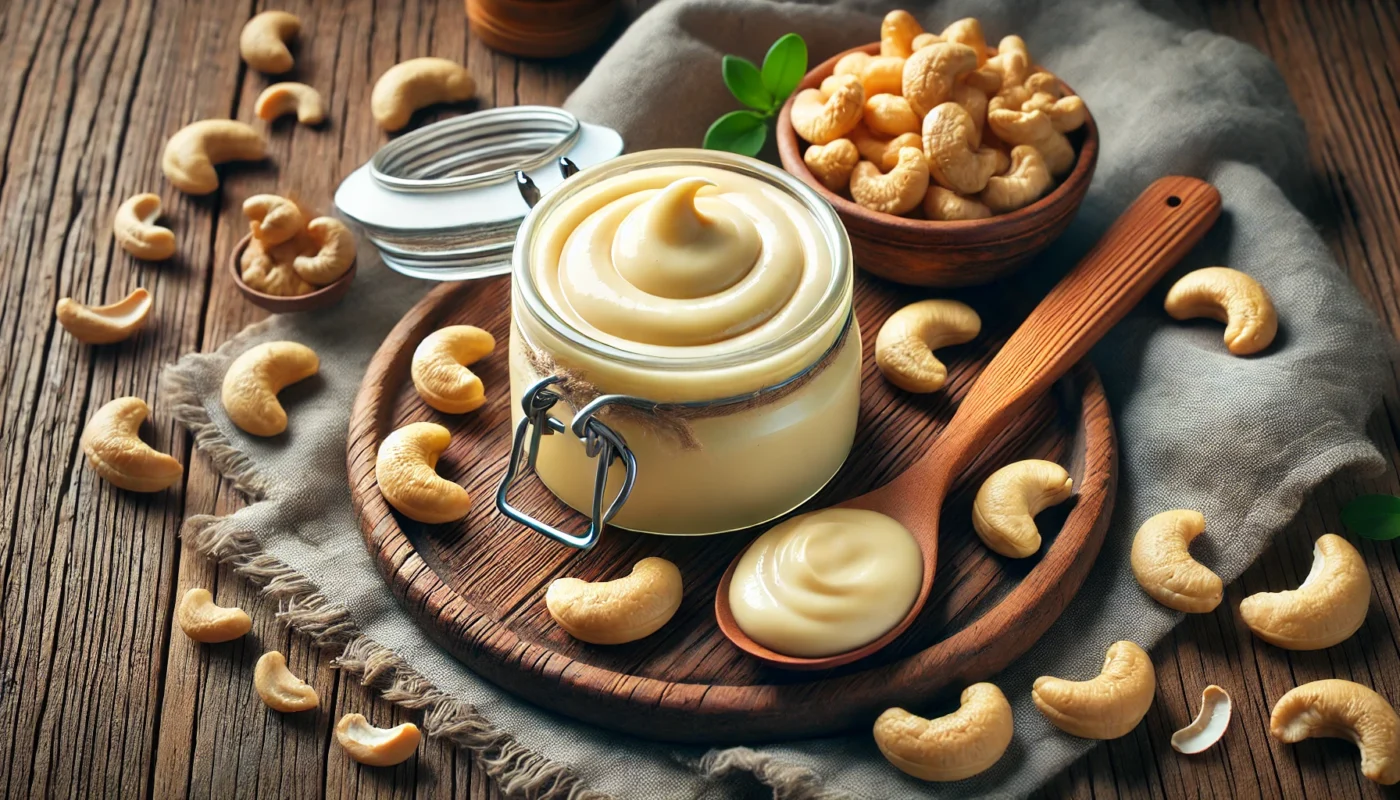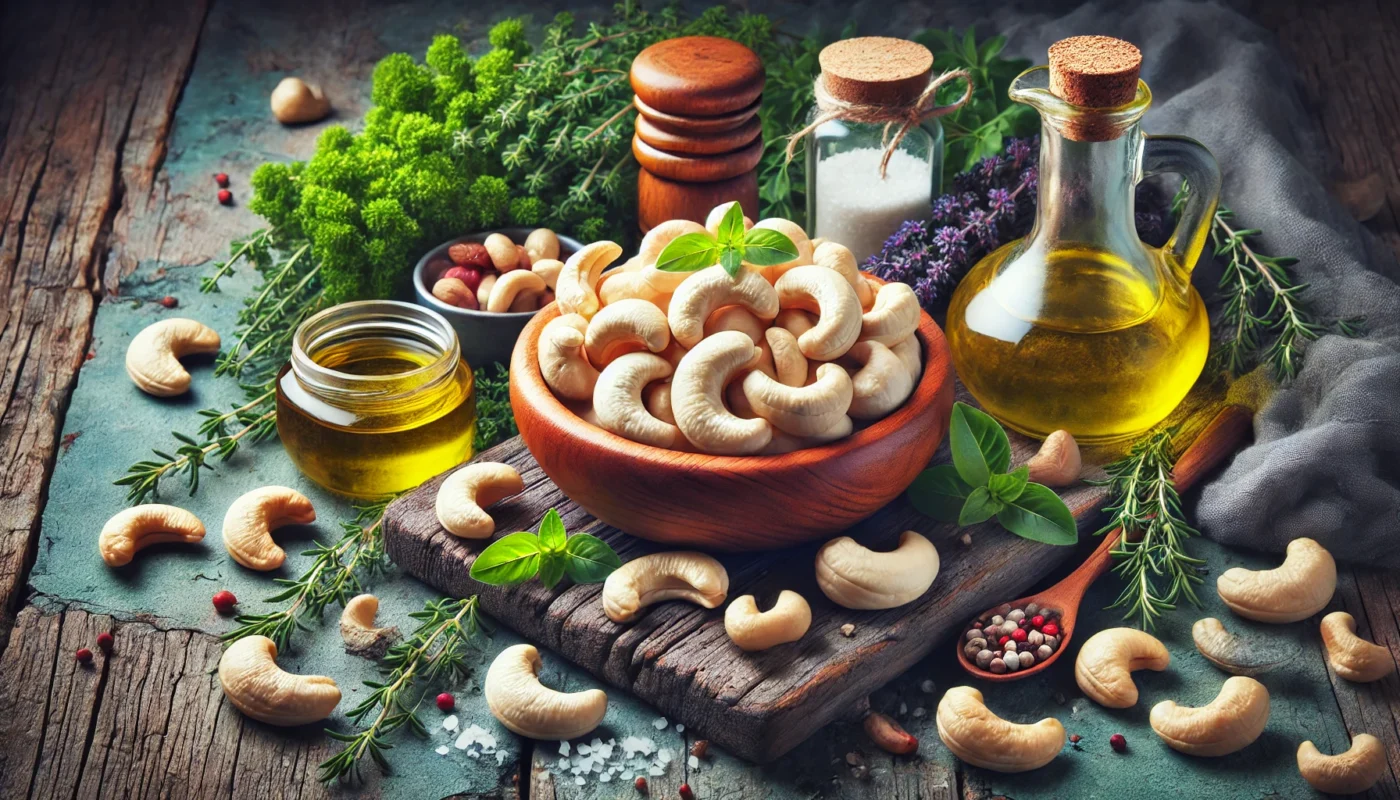Inflammation is the body’s natural response to injury or infection. While acute inflammation is a normal and healthy response to protect the body, chronic inflammation can lead to various health issues, including arthritis, heart disease, and even cancer. Managing inflammation through diet is a proactive approach to maintaining overall health and well-being.
You May Also Like: 20 Powerful Anti-Inflammatory Foods to Try
Types of Inflammation
There are two primary types of inflammation: acute and chronic. Acute inflammation occurs rapidly in response to an injury or infection, serving as the body’s immediate defense mechanism. It typically manifests through redness, heat, swelling, and pain, and resolves once the threat is eliminated. Chronic inflammation, on the other hand, is a prolonged and often less visible inflammatory response that can persist for months or even years, potentially leading to tissue damage and contributing to various chronic diseases.
Causes of Chronic Inflammation
Chronic inflammation can be triggered by a variety of factors, including lifestyle choices, environmental exposures, and genetic predispositions. Poor diet, lack of exercise, stress, and exposure to toxins can all contribute to sustained inflammatory responses. Additionally, certain autoimmune disorders, where the body’s immune system mistakenly attacks its own tissues, can also lead to chronic inflammation.
Health Implications of Chronic Inflammation
The consequences of chronic inflammation are far-reaching and can affect virtually every system in the body. It is implicated in the development and progression of numerous diseases, such as cardiovascular disease, diabetes, obesity, and neurodegenerative disorders. Recognizing and managing chronic inflammation is crucial for preventing these conditions and promoting long-term health.

The Role of Diet in Inflammation
Diet plays a pivotal role in either exacerbating or alleviating inflammation. Foods rich in antioxidants, omega-3 fatty acids, and other anti-inflammatory compounds can help reduce inflammation. Cashews, with their unique nutrient profile, may contribute positively to this aspect of diet.
Anti-Inflammatory Foods
A diet that focuses on anti-inflammatory foods can help reduce inflammation and improve health outcomes. Fruits and vegetables, particularly those high in antioxidants like berries and leafy greens, are essential components. Whole grains, fatty fish rich in omega-3 fatty acids, and healthy fats found in nuts and seeds, including cashews, are also beneficial in combating inflammation.
Pro-Inflammatory Foods to Avoid
Certain foods can exacerbate inflammation and should be limited or avoided to maintain optimal health. These include processed foods high in trans fats, refined sugars, and excessive consumption of red and processed meats. Additionally, reducing the intake of sugary beverages and foods high in refined carbohydrates can help lower inflammation levels.
The Mediterranean Diet and Inflammation
The Mediterranean diet is often cited as an exemplary model for reducing inflammation. It emphasizes whole, unprocessed foods, healthy fats, and a high intake of fruits, vegetables, and legumes. Incorporating elements of this diet, such as using olive oil instead of butter and eating nuts like cashews, can contribute to an anti-inflammatory eating plan.
Nutritional Profile of Cashews
Cashews are packed with essential nutrients that may support anti-inflammatory effects. They are a good source of healthy fats, vitamins, and minerals, including:
- Monounsaturated fats: These healthy fats help reduce LDL cholesterol and may contribute to heart health.
- Magnesium: An essential mineral involved in over 300 biochemical reactions in the body, including muscle and nerve function.
- Copper: Plays a crucial role in the production of red blood cells and maintaining a healthy immune system.
- Antioxidants: Such as polyphenols and carotenoids, which help protect cells from damage caused by free radicals.
Healthy Fats in Cashews
Cashews are abundant in heart-healthy monounsaturated fats, similar to those found in olive oil. These fats play a key role in reducing bad cholesterol levels, thus lowering the risk of heart disease. Additionally, they provide a steady source of energy, which can be beneficial for maintaining metabolic health.
Essential Minerals
The magnesium content in cashews aids in numerous physiological processes, including energy production and bone health. Furthermore, magnesium has been linked to reduced inflammation and improved metabolic profiles, which can help manage conditions such as hypertension and type 2 diabetes. Copper, another vital mineral found in cashews, supports the formation of connective tissues and promotes cardiovascular health.
Antioxidant Properties
Cashews contain various antioxidants, including phenolic compounds and carotenoids, which help neutralize harmful free radicals in the body. By reducing oxidative stress, these antioxidants can mitigate damage to cells and tissues, thereby decreasing the risk of chronic inflammatory diseases.
Are Cashews Anti-Inflammatory?
The question of whether cashews are anti-inflammatory or inflammatory is multifaceted and depends on various factors, including individual health conditions and overall diet. However, several studies suggest that cashews may have anti-inflammatory properties.
Scientific Studies on Cashews and Inflammation
- Reduced Inflammatory Markers: Research indicates that diets rich in nuts, including cashews, are associated with lower levels of inflammatory markers such as C-reactive protein (CRP). This suggests that regular consumption of cashews may help reduce systemic inflammation and improve cardiovascular health.
- Antioxidant Content: The antioxidants present in cashews can neutralize free radicals and reduce oxidative stress, a contributing factor to inflammation. Studies have shown that these antioxidants can protect cells from damage and may even have a role in slowing the aging process.
- Impact on Arthritis: While specific studies on cashews and rheumatoid arthritis are limited, the anti-inflammatory properties of the nutrients in cashews may offer some benefit in reducing symptoms associated with arthritis. Nutrients like magnesium and copper can help in managing joint health and reducing stiffness.
Addressing Concerns: Do Cashews Cause Inflammation?
For some individuals, particularly those with nut allergies or sensitivities, cashews may cause adverse reactions, including inflammation. It’s essential to consider individual tolerance and consult with a healthcare provider if concerns arise. Nut allergies can provoke immune responses that lead to inflammation, so it is critical for individuals with known sensitivities to approach cashew consumption cautiously.
Balancing Cashew Consumption
For most people, cashews can be a healthy part of an anti-inflammatory diet when consumed in moderation. It is important to balance their intake with other nutrient-dense foods and to be mindful of portion sizes due to their calorie density. Pairing cashews with other anti-inflammatory foods can help maximize their health benefits.

Practical Tips for Incorporating Cashews into Your Diet
For those seeking to harness the potential anti-inflammatory benefits of cashews, consider the following tips:
- Moderation is Key: Like all nuts, cashews are calorie-dense, so moderation is essential to avoid excessive calorie intake.
- Variety in Consumption: Incorporate cashews into a balanced diet alongside other anti-inflammatory foods like leafy greens, berries, and fatty fish.
- Preparation Methods: Opt for raw or dry-roasted cashews without added sugars or unhealthy oils to maximize health benefits.
Creative Ways to Enjoy Cashews
Cashews can be enjoyed in various culinary applications, adding both flavor and nutrition to meals. They can be blended into creamy sauces or spreads, added to salads for a crunchy texture, or used as a base for dairy-free milk or cheese alternatives. Experimenting with different recipes can help incorporate cashews into your diet in exciting ways.
Pairing with Other Nutritious Foods
To amplify the anti-inflammatory benefits of cashews, consider pairing them with other health-promoting foods. For instance, adding cashews to a salad with leafy greens, tomatoes, and a drizzle of olive oil can create a nutrient-dense meal rich in antioxidants and healthy fats. Combining cashews with fruits like blueberries or apples makes for a satisfying and nutritious snack.
Portion Control and Serving Sizes
While cashews offer numerous health benefits, it is crucial to monitor serving sizes to prevent overconsumption. A handful of cashews, roughly one ounce or a quarter-cup, is a reasonable portion that provides essential nutrients without excessive calories. Being mindful of portion sizes helps maintain a balanced diet and supports weight management.
A Comprehensive Approach to Inflammation Management
While cashews can be part of an anti-inflammatory diet, it’s crucial to adopt a holistic approach to manage inflammation. This includes regular physical activity, stress management techniques, and adequate sleep.
Holistic Strategies for Inflammation Reduction
- Exercise Regularly: Physical activity can help reduce inflammation and improve overall health. Engaging in regular exercise, such as walking, swimming, or yoga, can boost the body’s immune response and decrease inflammatory markers.
- Mindfulness and Relaxation: Practices like yoga and meditation can lower stress levels and, subsequently, inflammation. These practices help the body relax and reduce cortisol levels, a hormone associated with stress and inflammation.
- Adequate Sleep: Prioritizing quality sleep supports immune function and inflammation management. Establishing a regular sleep routine, avoiding screens before bedtime, and creating a restful environment can all contribute to better sleep quality and reduced inflammation.
The Importance of Stress Management
Chronic stress is a significant contributor to inflammation. Learning effective stress management techniques, such as deep breathing exercises, progressive muscle relaxation, or engaging in hobbies, can help mitigate the impact of stress on the body. Reducing stress not only benefits mental health but also supports physical well-being.
Integrating Lifestyle Changes
Incorporating lifestyle changes that promote overall health can enhance the body’s ability to manage inflammation. This includes maintaining a healthy weight, avoiding smoking, and limiting alcohol consumption. These changes, combined with a nutritious diet, can create a robust framework for reducing inflammation and improving health outcomes.

Conclusion: Cashews as Part of Your Inflammatory Toolbox
Cashews offer a range of health benefits, including potential anti-inflammatory effects. However, they are just one component of a comprehensive strategy to manage inflammation. By combining a balanced diet rich in anti-inflammatory foods with lifestyle modifications, you can support overall health and well-being.
Personalized Dietary Guidance
For individuals with specific health conditions or dietary concerns, consulting with a healthcare professional or nutritionist can provide personalized guidance on incorporating cashews and other anti-inflammatory foods into your diet. A tailored approach ensures that dietary choices align with individual health goals and nutritional needs.
Future Research and Insights
While more research is needed to fully understand the relationship between cashews and inflammation, their rich nutrient profile and potential health benefits make them a valuable addition to a health-conscious diet. Ongoing studies continue to explore the broader implications of nut consumption on inflammation and chronic disease prevention.
Embracing a Balanced Approach
In summary, incorporating cashews into your diet can contribute to managing inflammation, but they should be part of a broader, balanced approach to health. Emphasizing whole foods, physical activity, and stress management can create a sustainable lifestyle that promotes long-term well-being. By making informed choices and seeking professional advice when needed, you can harness the benefits of cashews and other anti-inflammatory foods effectively.
Further Reading:
News-Medical: An overview of the anti-inflammatory effects of nuts
National Library of Medicine: Cashew (Anacardium occidentale L.) Nuts Counteract Oxidative Stress and Inflammation in an Acute Experimental Model of Carrageenan-Induced Paw Edema
cashews, anti-inflammatory diet, nutrition, healthy eating, portion control, inflammation management, holistic health, stress management, lifestyle changes, dietary guidance, wellness, healthy fats, antioxidants, plant-based diet, immune support.
Important Note: The information contained in this article is for general informational purposes only, and should not be construed as health or medical advice, nor is it intended to diagnose, prevent, treat, or cure any disease or health condition. Before embarking on any diet, fitness regimen, or program of nutritional supplementation, it is advisable to consult your healthcare professional in order to determine its safety and probable efficacy in terms of your individual state of health.
Regarding Nutritional Supplements Or Other Non-Prescription Health Products: If any nutritional supplements or other non-prescription health products are mentioned in the foregoing article, any claims or statements made about them have not been evaluated by the U.S. Food and Drug Administration, and such nutritional supplements or other health products are not intended to diagnose, treat, cure, or prevent any disease.

